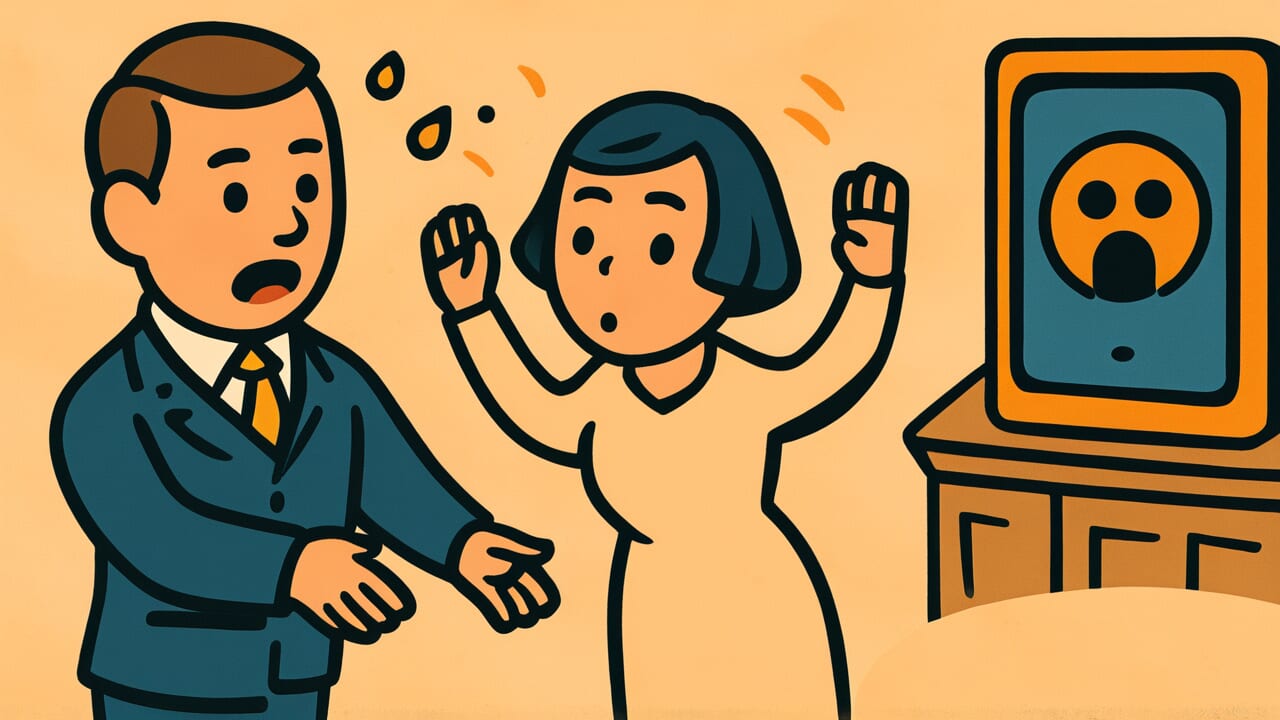How to Read “Cursing but not dying”
norou ni shinazu
Meaning of “Cursing but not dying”
“Cursing but not dying” means that even if you resent someone and curse them, they won’t die. It shows that holding onto grudges is meaningless.
No matter how strongly you hate someone and wish for their misfortune, your thoughts alone cannot actually harm them. This is the reality the proverb reveals.
This saying is used when someone is trapped by resentment toward another person. It teaches them that their feelings are useless.
Continuing to hold a grudge doesn’t hurt the other person at all. Instead, it only eats away at your own heart and wastes your time.
Even today, everyone faces moments when they might be consumed by hatred. This happens after relationship troubles or unfair treatment.
When such times come, this proverb reminds us of something important. It shows us how powerless resentment truly is and how foolish it is to cling to it.
Origin and Etymology
The exact first appearance of this proverb in literature is difficult to pinpoint. However, we can make interesting observations from how the words are structured.
The word “curse” reflects the magical worldview that Japanese people held since ancient times.
During the Heian period, onmyoji (yin-yang masters) were active. People feared curses and divine retribution.
There was a time when people actually believed in practices like ushi no koku mairi. This ritual involved trying to curse someone to death.
But this proverb declares “cursing but not dying.” It confronts people with reality.
No matter how strongly you resent and curse someone, that person won’t die. This likely came from accumulated experience.
Even in an era when curses were taken seriously, people learned through experience. Curses didn’t actually kill people.
Folk wisdom taught the uselessness of holding grudges. This lesson was passed down orally through generations.
Over time, it crystallized into this concise expression. The proverb shows something fascinating about Japanese culture.
A magical worldview remained strong, yet a rational perspective coexisted. This perspective calmly denied the power of curses.
We can say this was practical life wisdom. It arose naturally from people’s everyday experiences.
Usage Examples
- I suffered for years with resentment toward that person, but cursing but not dying—they’re perfectly fine. I should just forget about it.
- They say cursing but not dying, so I realized hating someone is a waste of time. I decided to look forward instead.
Universal Wisdom
The proverb “Cursing but not dying” contains insight about the deep gap between human emotions and reality.
When people are hurt, they feel intense hatred and resentment toward the person who hurt them.
This emotion is so powerful that it creates an illusion. You might feel like you could actually curse someone to death.
You think about them so much you can’t sleep at night. You keep wishing for their misfortune.
Because the emotion is so intense, it feels like it must have some real power.
But reality is cruel. No matter how strongly you resent someone, your thoughts alone won’t make them suffer.
The other person might be laughing, completely unaware. Resentment doesn’t actually harm them at all.
It only eats away at yourself.
This proverb has been passed down for so long because many people have experienced this bitter truth.
They wasted time trapped by resentment. Eventually, they realized how useless it was.
Our ancestors left this lesson so future generations wouldn’t repeat the same mistake.
The strength of an emotion and its real-world power are two different things. Accepting this harsh fact is the first step toward freedom from resentment.
When AI Hears This
Looking at cursing through physics reveals something interesting. When someone strongly hates another person, their brain actually consumes energy.
Stress hormones are released. Heart rate increases. Body temperature rises.
In other words, chemical energy is being converted into thermal energy.
What matters here is where this energy goes. The person cursing wants to damage their target.
But physically, nothing happens. Hatred energy doesn’t fly through the air like radio waves.
As a result, all that energy is consumed within the cursing person’s own body.
The second law of thermodynamics shows that energy in a closed system always scatters toward disorder.
In other words, hatred energy breaks apart inside the body. Eventually, it’s just released as heat.
The bigger problem is that this process definitely wears down the cursing person’s body.
Continued stress lowers immune function. Sleep quality deteriorates.
The target knows nothing and lives normally. Meanwhile, only the cursing person keeps burning their own energy.
This is like a car loaded with fuel that goes nowhere but keeps its engine running.
Physical laws are merciless. They keep demanding payment from the cursing person for the energy they invest.
Lessons for Today
This proverb teaches modern people about the importance of choosing where to direct emotional energy.
When someone hurts you, feeling resentment is a natural reaction. But staying trapped in that emotion for long won’t change the other person.
Cursing but not dying, after all. So why not use that same energy in a different direction?
Use the time you’d spend on resentment for your own growth and happiness instead.
Rather than wishing for someone else’s misfortune, focus on building a better life for yourself.
This doesn’t force you to “forgive.” It’s simply a suggestion.
Invest your limited life time and energy in something more valuable.
In modern society, social media makes it easy to see what others are doing. This can make it harder to let go of resentment.
That’s exactly why this proverb’s wisdom shines. The other person’s life is their own. You live your own life.
Drawing that boundary is the first step toward true freedom.
Remove the chains of resentment yourself. Have the courage to turn around and walk forward.



Comments